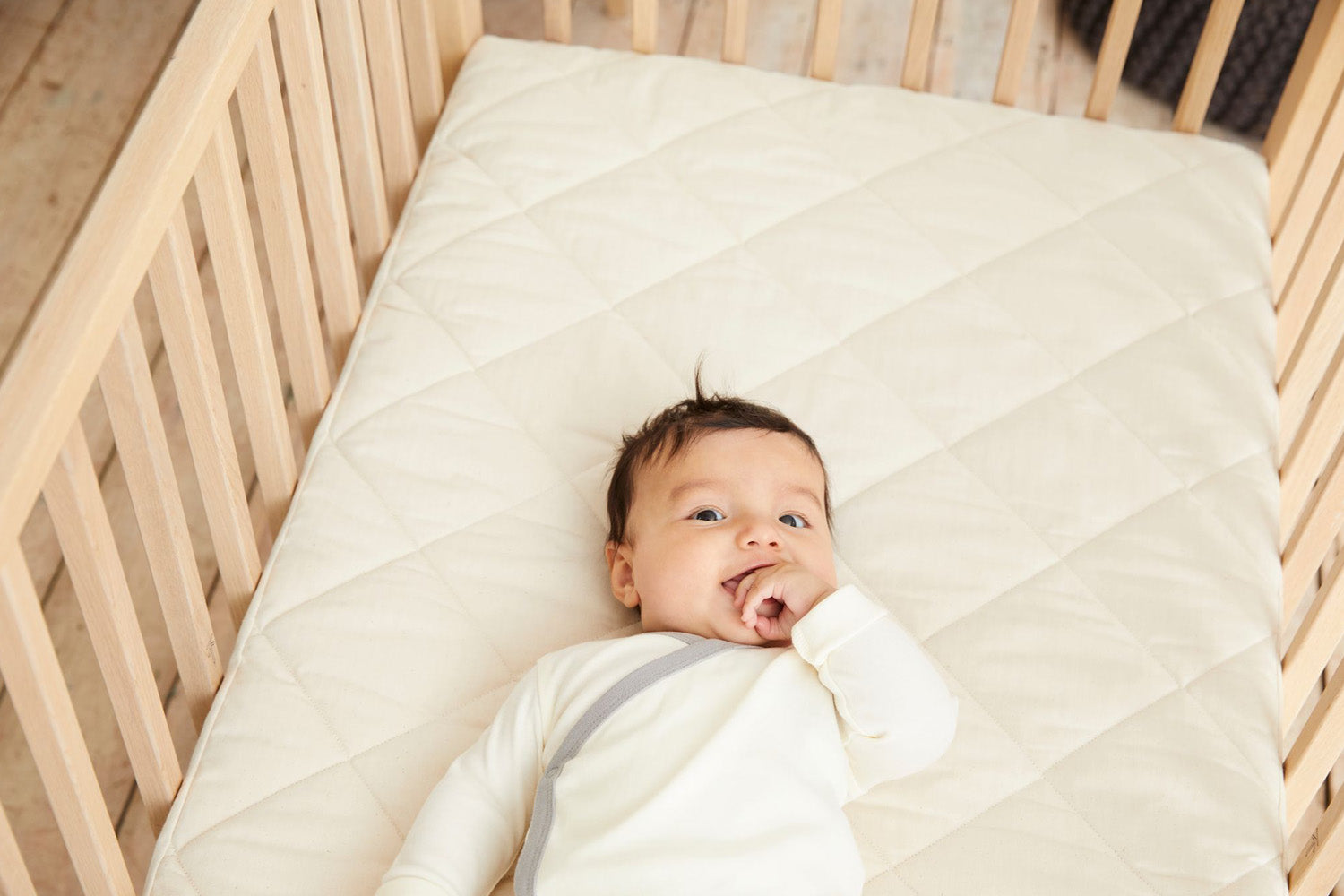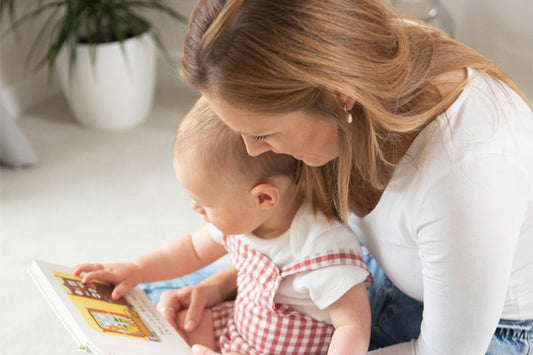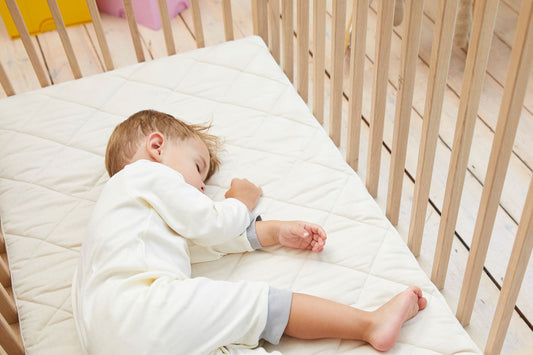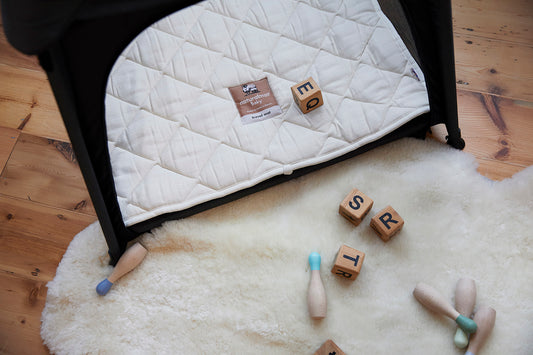Bedtime routines are a key part of ensuring your baby gets the rest they need for healthy mental and physical development. A consistent routine will also soothe your baby, signalling that it's time to sleep and making it easier for them to actually fall asleep. Establishing a bedtime routine can also provide a sense of security and comfort to your little one.
We know that creating and maintaining a consistent bedtime routine can seem daunting - especially to first-time parents. So, we've teamed up with Lucy - founder of early years consultancy NEST - to share three tips on how to make developing a routine easier for both you and your little one.
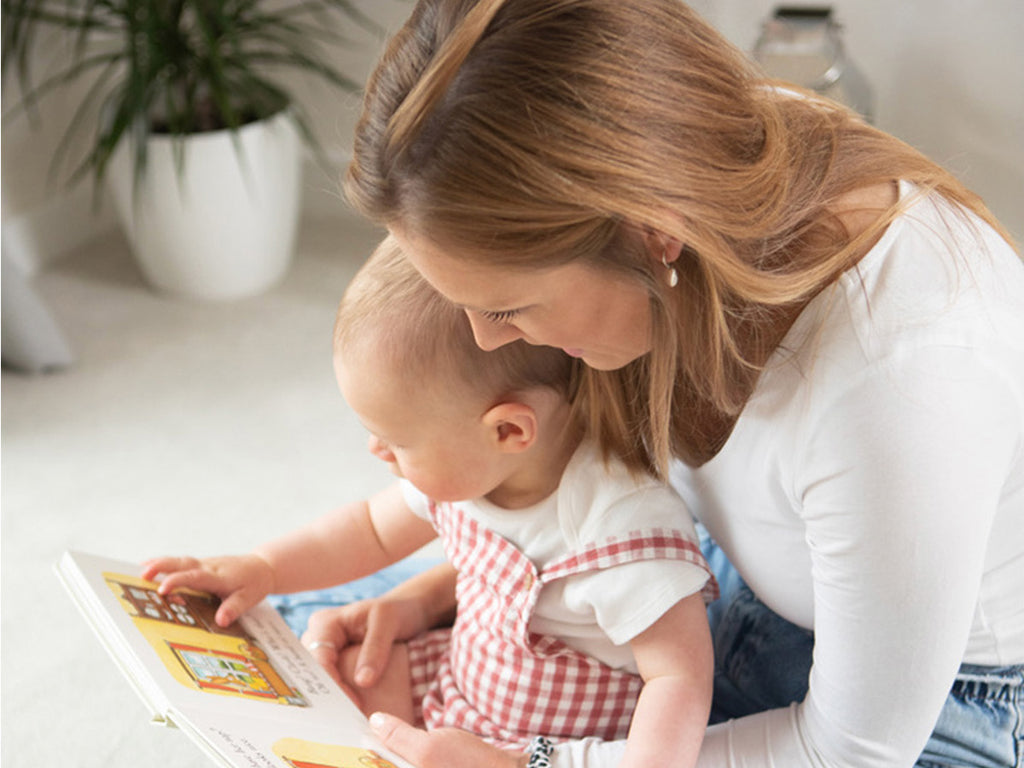
When should I start a bedtime routine?
We recommend starting a gentle bedtime routine when your little one is around 12 weeks old. Before 12 weeks, you may find that baby will only fall asleep in your arms, or when you're next to their cot or crib. However, there is ultimately no 'right' age, and it comes down to personal choice.
Their first bedtime routine can be a simple process of bath, story and then bed - if you'd like some inspiration, check out our Guide to a Natural Bed & Bath Time.

Tip #1 - Keep it positive!
It might seem easier said than done - especially after a long day - but try to make bedtime as calm and positive as possible for your baby. By keeping it calm rather than rushed, you'll begin to build positive associations with bedtime.
Keeping it calm will not only promote a better night’s sleep for your little one, but for you, too! Story time is the perfect opportunity for you to bond with your child and to relax before bed.

Tip #2 - Calm bathtime, calm bedtime.
When bathing baby, try to avoid the temptation of playing. Instead, take this opportunity to nurture baby into a calmer state. Try to avoid harsh lighting - if you can bathe them by natural light in the summer months then do, as this will help to reduce stimulation. If you're unable to bathe by natural light, or if it's winter time, try to opt for softer indirect lighting such as the hallway light.
Avoid your little one having any sort of screen time an hour before they go to bed. The blue light from screen stimulates our brain which makes it harder to go to sleep and have restful nights sleep. Instead follow their bath with one story snuggled up together. Don’t feel like you need to read back-to-back stories, as this might overstimulate them. Again, during story time, ensure that the lights are low and calming.

Tip #3 - Consistency is key!
Whatever your routine, consistency is the key to success. There’s no need to overcomplicate things - this could lead to overstimulation. Keeping your routine consistent in the early days will help to build positive sleep associations for the future.
You want to have flexibility so you can go on holiday or away for the weekend and relax, but we also want to ensure that you can build the foundations for a positive bedtime routine. By keeping their bedtime routine consistent in the early days, you'll help to build positive sleep associations for the future.

About NEST
NEST is an Early Years Consultancy supporting you and your family from pregnancy right through to when your little one starts school. With a team of highly qualified consultants, NEST can support you from packing a hospital bag and preparing for the arrival of your baby, to infant feeding, weaning, sleep, toilet training, managing emotions, and so much more - either as a 1:1 consultation or through one of our workshops.
With a passionate team who ensure that you feel heard, supported and empowered, we work alongside you to offer advice and support which works for you and your little one.
